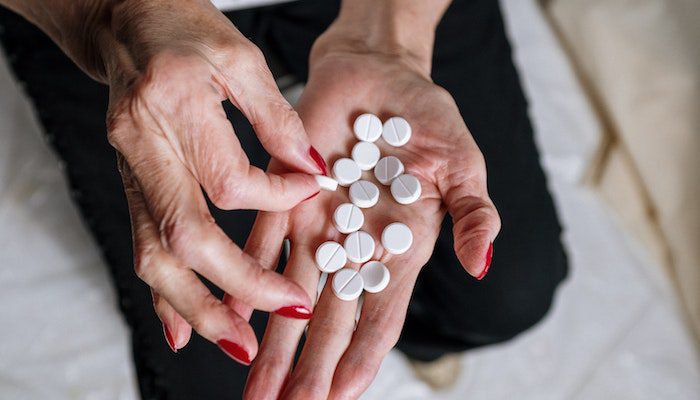Prescription opioids are often provided to people who are facing intense or chronic pain. These drugs work to stop the pain signal sent from the body to the brain. That signal is important because it’s what tells your brain that something needs attention, like pulling your hand away from a hot surface. Yet when injury and disease occur, it is quite common for that pain signal to fire too intensely. The use of prescription opioids is one of the most effective ways to bring severe pain under control.
Are Pain Pills Addictive?
Many types of pain medications carry a high risk for addiction. That is because of how they work. These medications work on the opioid receptors in the brain; they help control pain, but they also induce a feeling of euphoria. Since your brain is wired to seek out activities that spur pleasure, it develops a physical need for the drugs. This often leads to dependence, in which a person using prescription opioids cannot stop using them without feeling intense pain or cravings.
The other component of this process is tolerance. Over time, the body gets used to the number of pills you are taking, so to experience the same level of relief and pleasure, you feel as though you need to take more. Tolerance often leads to increased doses, and as that happens, it creates a high level of toxicity in the body.
Even if you think you can handle it, taking too much of your prescription medication can lead to an overdose.
Know the Risks and the Statistics
The Centers for Disease Control and Prevention shared that, from 1999 to 2020, more than 263,000 people in the U.S. died from prescription opioid overdoses. During that period, the number of deaths involving these drugs increased by five times.
No matter what you believe about prescription opioids and your use of them, you could be at risk for overdose.
How Can You Stop Using Prescription Opioids?
Changes have occurred in prescribing practices to make it harder for people to use prescription opioids over a longer period of time when the risks of addiction are higher. Yet even in those situations, illegal access to prescriptions that may not be yours or the use of illicit substances like heroin, a powerful opioid, continue to be a concern.
If you are using any type of opioid, recognize the risks and seek help from a drug treatment center. You can get help for addiction and prevent overdose from occurring through a controlled detox program and medical support.
Signs You May Need to Enter Into a Prescription Drug Treatment Program
How do you know that you’re at risk for addiction? It’s often hard to tell on your own, but there are a few specific things to look for to know it’s time to get help. Some signs of prescription drug addiction include:
- Thinking about taking the drug often, as if you are counting down the time until your next dose.
- Feeling anxiety and fear of what could happen if you miss your next use of the drug
- Needing to use more of the drug than you did before
- Experiencing cravings for the substance when you are not using it
- Feeling as though you cannot function normally in life without the use of the drug
- Being unwilling or unable to use other types of pain relief to get any resolution to your pain
- Others are telling you you’re using too much
- You’re using someone else’s medications or incorporating heroin into your habits
If you find yourself in any of these situations, seek out treatment immediately as you could be at risk for an opioid overdose. Even if you’ve taken these medications for years and feel as though you have control over it, your next dose could be too much for your body. You could end up overdosing.
Let Our Treatment Team Help You
At The Ranch at Dove Tree, we work closely with you to help you break through the holds that prescription medications have on you. Take the step toward better health. Seek out our drug treatment center in Lubbock, Texas, to learn more about the care options. Enter into detox, then enter a treatment program to learn more about how to manage your pain without opioids so that you can take back control of your life.







